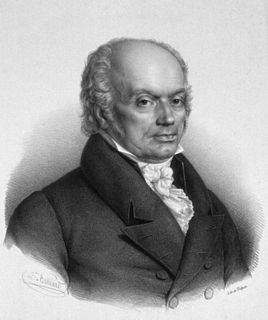A Quote by Samuel Smiles
The principal industrial excellence of the English people lay in their capacity of present exertion for a distant object.
Quote Topics
Related Quotes
Human beings have the capacity to learn to want almost any conceivable material object. Given, then, the emergence of a modern industrial culture capable of producing almost anything, the time is ripe for opening the storehouse of infinite need!... It is the modern Pandora's box, and its plagues are loose upon the world.
Throughout the industrial era, economists considered manufactured capital - money, factories, etc. - the principal factor in industrial production, and perceived natural capital as a marginal contributor. The exclusion of natural capital from balance sheets was an understandable omission. There was so much of it, it didn't seem worth counting.
On the one hand, there is no question that English - frequently bad English - has become the universal language of scholarship. It is clearly a tremendous handicap for people outside of the United States, Britain, and Australia and a few other countries because few of them are native speakers, but we demand that they present and publish in English.
I cannot believe that our factory system is the best mode by which men may get clothing. The condition of the operatives is becoming every day more like that of the English; and it cannot be wondered at, since, as far as I have heard or observed, the principal object is, not that mankind may be well and honestly clad, but, unquestionably, that the corporations may be enriched.
Distance... is like futurity. A dim vastness is spread before our souls; the perceptions of our mind are as obscure as those of our vision... But alas! when we have attained our object, when the distant 'there' becomes the present 'here,' all is changed; we are as poor and circumscribed as ever, and our souls still languish for unattainable happiness.
Excellence is THE trend of the '80s. Walk into any shopping mall bookstore, go to the rack where they keep the best-sellers such as Garfield Gets Spayed, and you'll see a half-dozen books telling you how to be excellent: In Search of Excellence, Finding Excellence, Grasping Hold of Excellence, Where to Hide Your Excellence at Night So the Cleaning Personnel Don't Steal It, etc.
I love the idea of engaging the object, whether it be architecture or a piece of good graphic design, or a good painting, or piece of sculpture, or even a piece of industrial manufactured object. A piece of engineering can be quite beautiful, too, or a photomicrograph, or a cosmic photograph. We're physical beings and why deny that. So in that sense, it's very sensual to have an object that has the power to communicate some emotion or a state or give you some sense.
The precise effects of lensing depend on the mass of the lens, the structure of space-time, and the relative distance between us, the lens, and the distant object behind it. It's like a magnifying glass, where the image you get depends on the shape of the lens and how far you hold it from the object you're looking at.

































